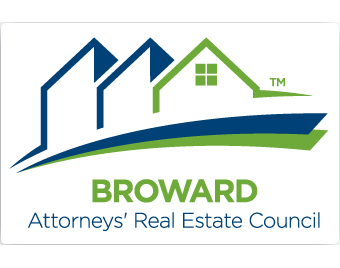Did you know that the number of senior citizens in the United States is on the rise? With the Baby Boomer generation hitting retirement age and increasing life expectancy, the Census Bureau reports that around 1 in 6 Americans are now senior citizens—and that number is expected to jump to 1 in 5 in the coming years. Elder law is a specialized legal practice area focused on the needs, legal rights, and financial interests of older Americans. Here, our Fort Lauderdale elder law attorney answers some of the most common frequently asked questions (FAQs) about elder law in Florida.
What is Elder Law and How is it Different from General Legal Practice?
Broadly speaking, elder Law is a specialized area of legal practice that is entirely focused on issues that affect senior citizens and other older people. In practice, the field encompasses a broad range of legal matters, including:
Unlike general legal practice—which can cover a wide spectrum of legal issues—elder law is specifically tailored to address the unique needs of older adults and their families. It can involve a holistic approach.
Is Estate Planning a Part of Elder Law?
Absolutely. Every adult in Florida should have a comprehensive, personalized estate plan in place. While you are never too young to get started with estate planning, it is especially important that older people have a well-considered estate plan. Estate planning is a core component of elder law. At its core, the process involves preparing for the management of a person’s asset base in the event of incapacitation or death.
What Should Be Part of My Estate Plan?
It depends. Estate planning is about preparing your legal, financial, and family affairs so that your best interests are protected and your goals are achieved. What goes into an estate plan in Florida? The answer depends on a number of different factors. Indeed, every person’s estate plan should be customized to meet their situation. Estate plans often include:
Why are Long-Term Care Costs Such a Big Concern?
Long-term care costs are a major concern for the elderly in Florida due to the high cost of healthcare services and the likelihood of needing extended care as one ages. According to data from the Florida Health Care Association (FHCA), a private room in a nursing home costs an average of over $100,000 per year—and the cost continues to increase faster than the rate of general inflation. Sadly, these costs can quickly deplete savings and assets. Even a relatively short period of long-term care needs could drain your hard-earned savings. Planning for these costs is essential.
What is the Best Way to Protect My Assets Against Long-Term Care Costs?
As stressful and frustrating as it can be to prepare for long-term care needs, an experienced Fort Lauderdale elder law attorney can help protect your rights and your interests. You are not out of options. There is a government program that covers nursing home care and other long-term care needs. However, that program is Medicaid, not Medicare. Why does the difference matter? Medicaid is means-tested, not everyone qualifies.
The best way to protect your assets against long-term care costs involves early planning and may include purchasing long-term care insurance and setting up a trust. Notably, Medicaid has a five-year lookback period—meaning you can protect assets by transferring them into a Medicaid-compliant trust at least five years before long-term care needs arise. Of course, each strategy has its own benefits and should be chosen based on individual circumstances and goals.
How Do Adult Guardianships Work in Florida?
In Florida, adult guardianship is a legal process initiated when an adult is incapable of making decisions about their personal and financial affairs due to mental or physical incapacities. The court appoints a guardian to make decisions on behalf of the incapacitated individual. As a general matter, the process includes assessing the individual’s mental capacity, selecting an appropriate guardian, and providing oversight to ensure the guardian acts in the best interest of the incapacitated person.
Note: Florida favors the least restrictive alternative for vulnerable adults. By setting up a power of attorney (POA), a vulnerable adult may not need guardianship.
Can an Elder Law Attorney Help Prevent Elder Abuse?
Yes. In fact, an elder law attorney in Florida Lauderdale can play a key role in preventing elder abuse. Among other things, your lawyer can help set up proper estate planning documents that protect assets and decision-making authority, advise on signs of abuse and how to address them and provide legal representation in cases where abuse occurs. If you have any questions about elder law and elder abuse, an experienced elder lawyer can help.
Contact Our Fort Lauderdale Elder Law Attorney for a Confidential Consultation
At The Law Offices of Odelia Goldberg, our Florida elder lawyer is devoted to helping people and families find the answers that work for them. Have questions or concerns about elder law? We are here to help. Contact us today to arrange your completely confidential, no-obligation case review. From our Fort Lauderdale office, we provide reliable elder law services throughout South Florida, including in Miami, Hollywood, Boca Raton, West Palm Beach, and Pompano Beach.







The information on this website is for general information purposes only. Nothing on this site should be taken as legal advice for any individual case or situation.
This information is not intended to create, and receipt or viewing does not constitute, an attorney-client relationship.
© 2025 The Law Offices of Odelia Goldberg. All Rights Reserved. Privacy Policy. Web Development by IWD Marketing